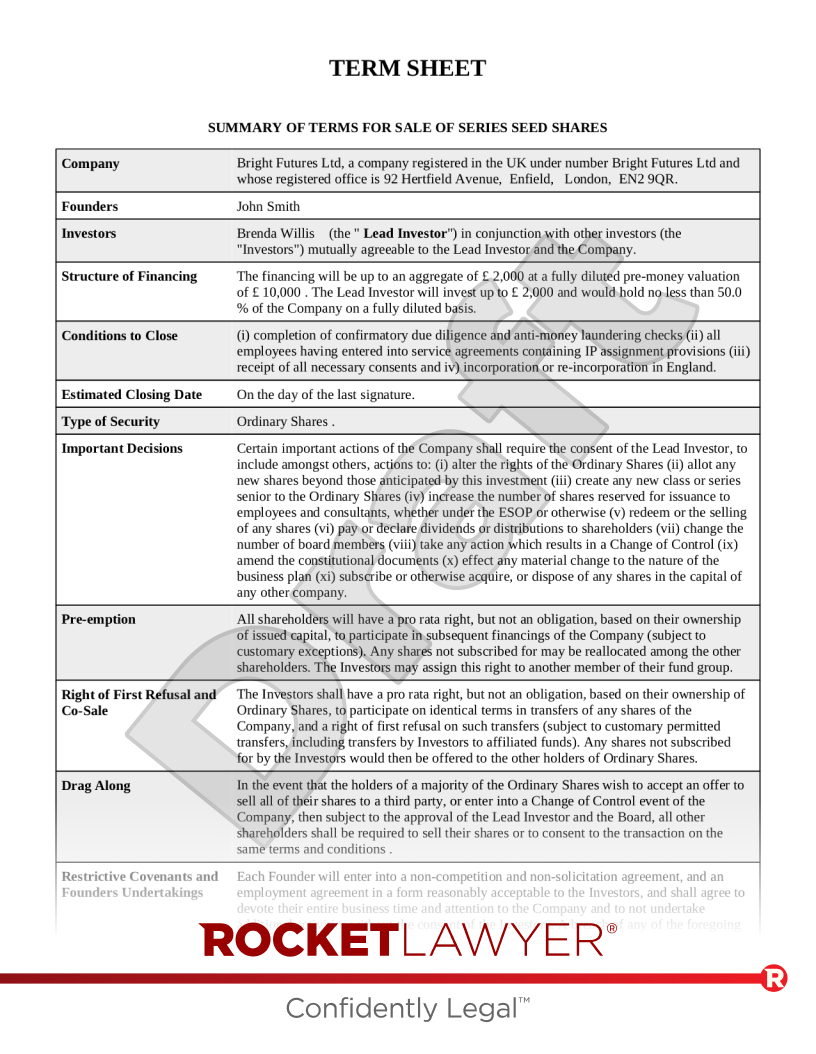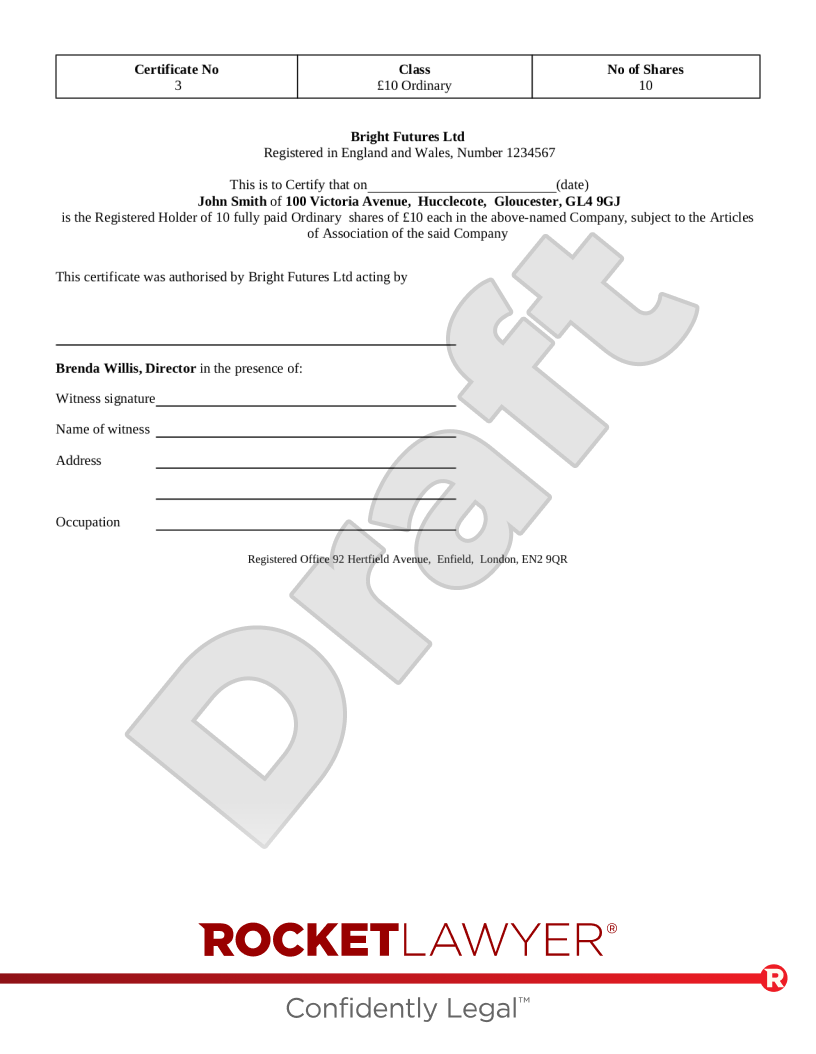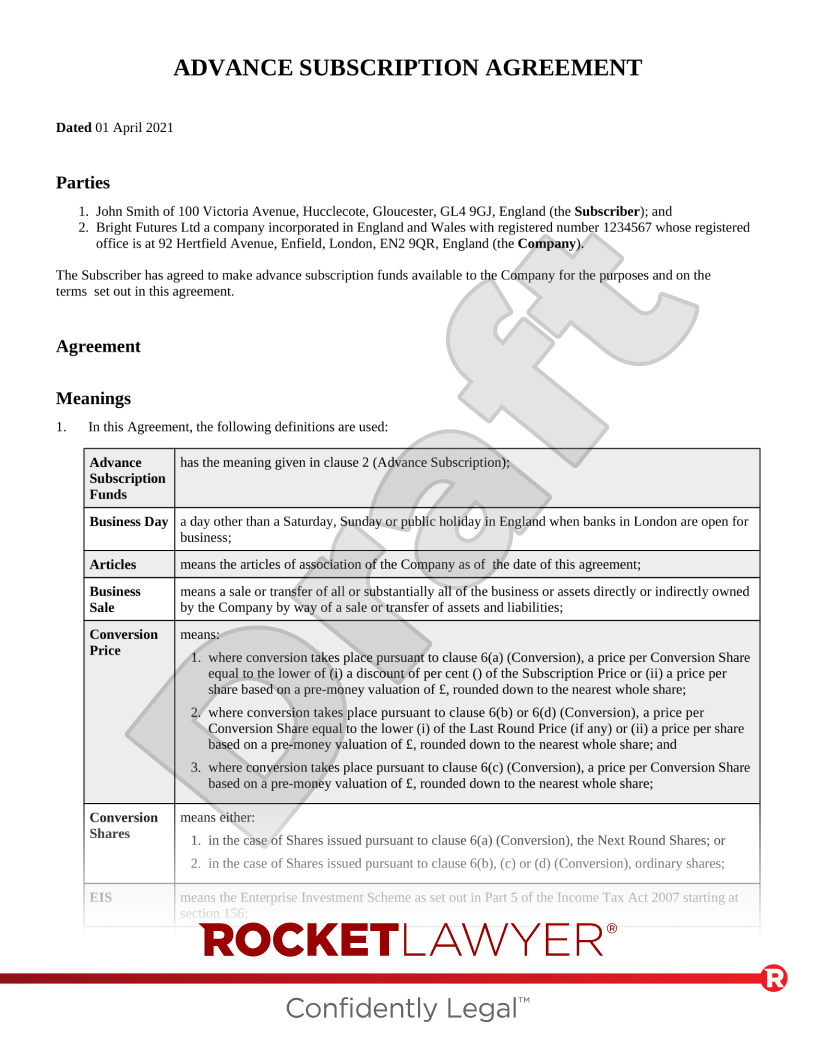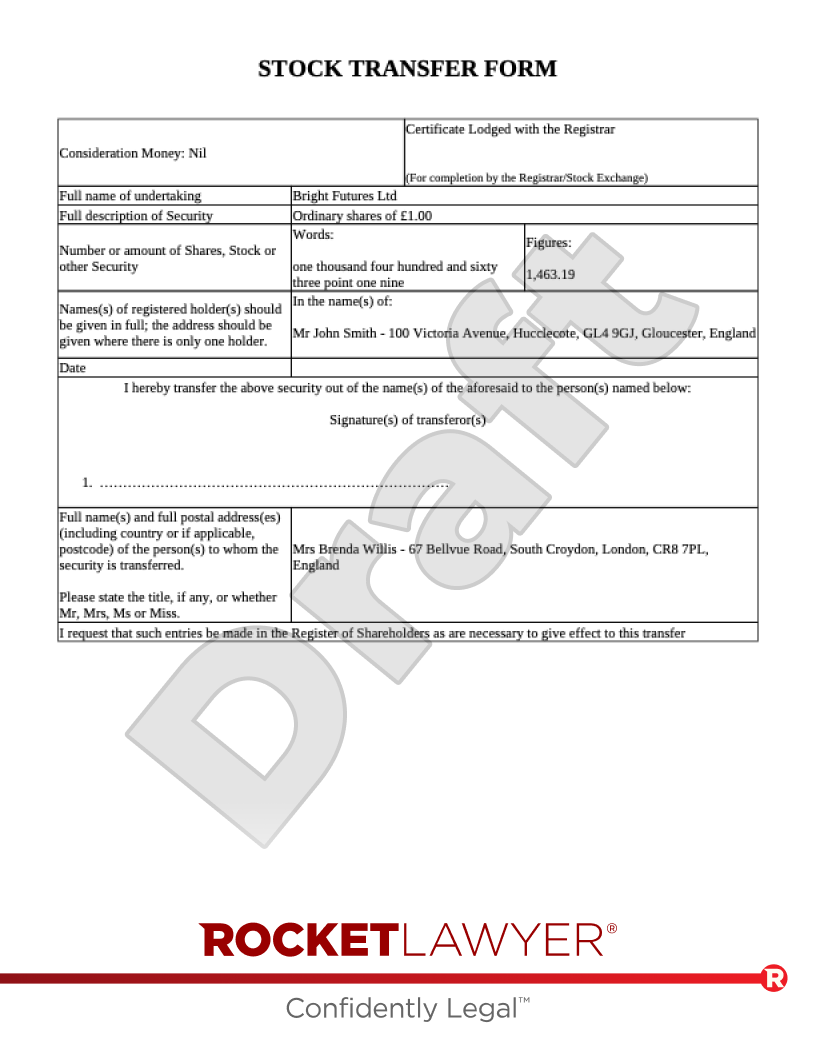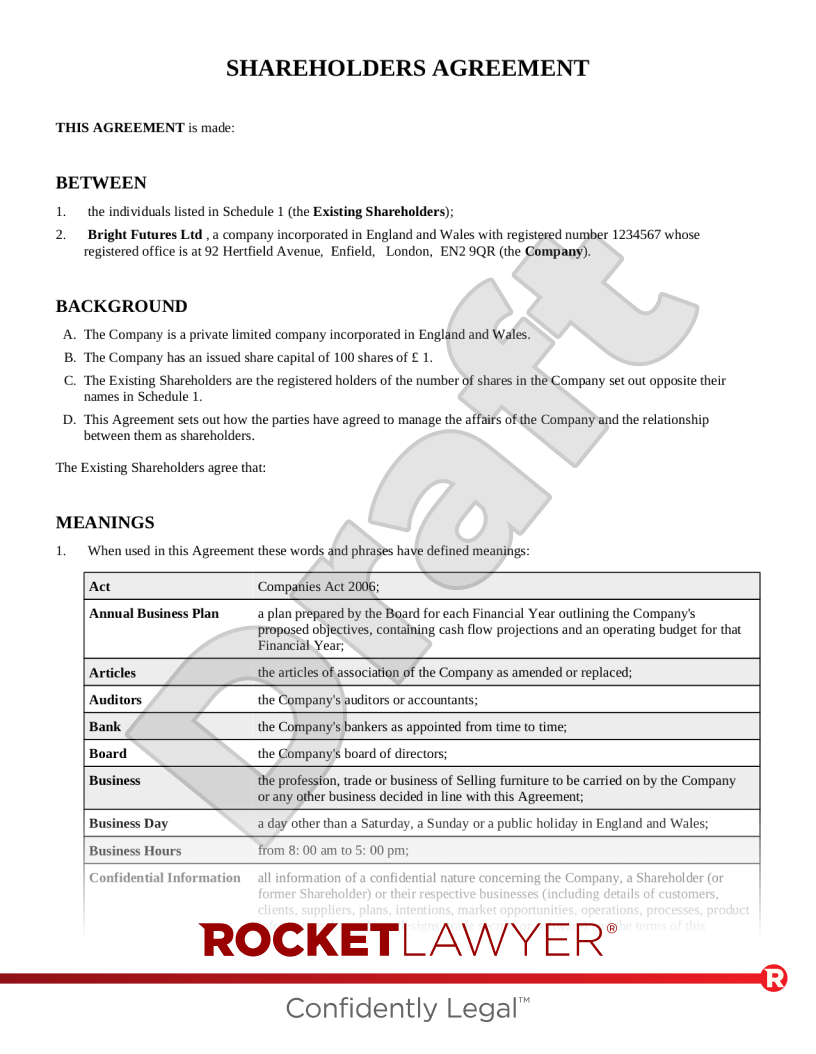Make Your Document In 3 Easy Steps:
Build your document
Answer a few questions to customise your document in minutes


Save now, finish later
Start now and save your progress, finish on any device

Sign & make it legal
Download, print and securely sign

